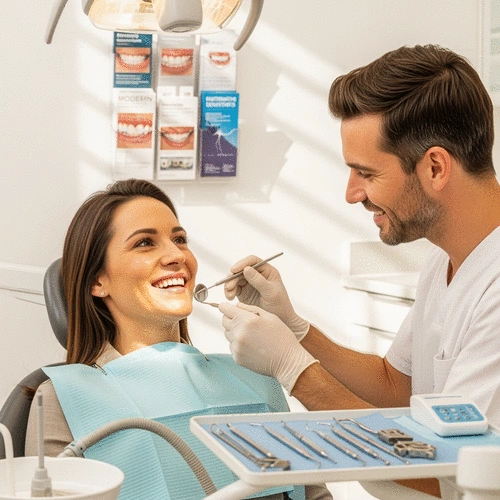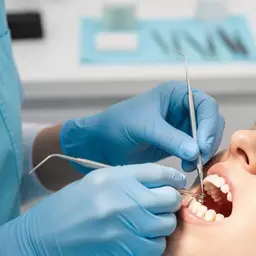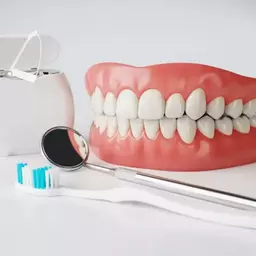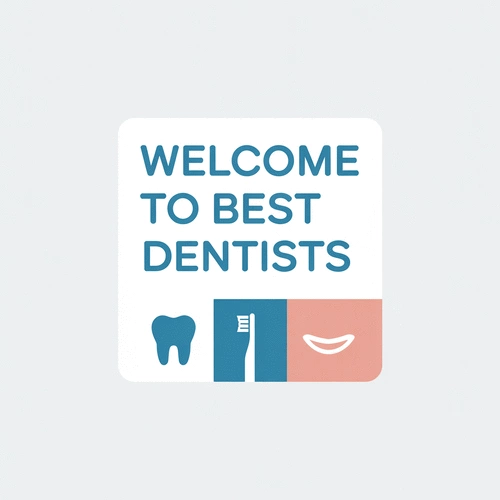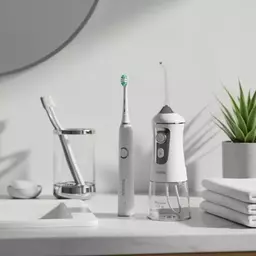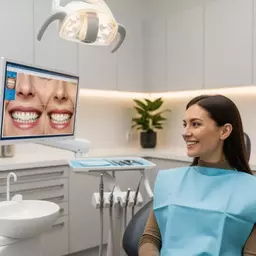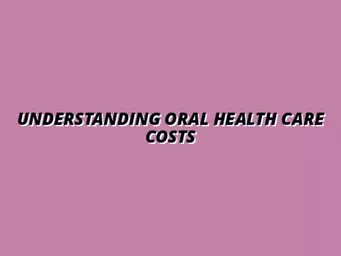What if restoring your smile could also restore your confidence and improve your overall health? Understanding restorative dentistry not only leads to better oral health choices but enhances your quality of life.
What You Will Learn
- Restorative Dentistry Defined: A variety of treatments designed to repair or replace damaged teeth, enhancing both function and aesthetics.
- Importance of Restorative Treatments: They restore chewing and speaking abilities, prevent further complications, and improve self-confidence.
- Common Treatments Explained: Options include dental fillings, crowns, bridges, implants, dentures, and root canals tailored to individual needs.
- Role of Preventive Care: Regular dental check-ups and good oral hygiene significantly reduce the risk of needing restorative procedures.
- Expert Guidance is Essential: Consulting with a dental professional ensures personalized treatment recommendations based on your specific situation.
Key Restorative Dental Treatments Overview
This visual summarizes the common restorative dental treatments, highlighting their primary uses and benefits for various dental issues.
Dental Fillings
Repairs cavities and restores tooth shape.
Dental Crowns
Covers damaged tooth for strength & appearance.
Dental Bridges
Replaces one or more missing teeth.
Dental Implants
Permanent solution for lost teeth.
Dentures
Removable appliances for multiple missing teeth.
Root Canals
Saves natural tooth from severe damage/infection.
Understanding Restorative Dental Treatments: An Overview
Restorative dentistry is all about helping you achieve a healthy, functional smile! At Best Dentists, we believe that understanding restorative dental treatments is crucial for making informed decisions about your oral health. These treatments focus on restoring the function and appearance of damaged or missing teeth, ensuring that not only do you smile confidently, but you also maintain optimal oral health.
So why is restorative dentistry important? Think of it this way: a healthy smile is not just about aesthetics; it affects your overall health. When teeth are damaged or missing, it can lead to issues like difficulty eating, bite problems, and even jaw pain. Choosing the right restorative treatments can significantly improve your quality of life!
What is Restorative Dentistry and Its Importance?
Restorative dentistry encompasses a variety of procedures designed to repair or replace damaged teeth. This field is essential for several reasons:
- Restoration of Function: Treatments enable you to chew and speak without discomfort.
- Prevention of Further Damage: Addressing issues early can prevent more severe complications down the road. For example, modern restorative techniques are continuously evolving to offer more durable and aesthetically pleasing solutions, as detailed in research published by Wiley Online Library.
- Improvement of Aesthetics: Restorative treatments can enhance the appearance of your smile, boosting your confidence.
As a dental professional, my goal is to guide you through these options, ensuring you understand how each treatment works and how it can benefit your unique situation.
Common Types of Restorative Dental Treatments
There are several common restorative treatments that I frequently recommend to patients based on their individual needs. Here are some of the most popular options:
- Dental Fillings: Used to repair cavities and restore the tooth's shape.
- Dental Crowns: These cover a damaged tooth, adding strength and enhancing its appearance.
- Dental Bridges: Ideal for replacing one or more missing teeth.
- Dental Implants: A permanent solution for lost teeth that looks and functions like natural teeth. Research on the long-term success of dental implants is regularly updated, with studies like those found on PMC NCBI discussing their efficacy.
- Dentures: Removable appliances that replace multiple missing teeth.
- Root Canals: Focused on saving a natural tooth that's been severely damaged or infected.
Each treatment plays a vital role in restoring your smile and ensuring that you maintain excellent oral health. If you're ever unsure about which option is right for you, don't hesitate to reach out for a consultation at Best Dentists!
The Role of Preventive Care in Restorative Dentistry
Preventive care is the cornerstone of restorative dentistry. By maintaining regular dental check-ups and practicing good oral hygiene at home, you can significantly reduce the risk of dental issues that may require restorative procedures later on. Here are some key preventive measures:
- Regular Dental Check-Ups: Scheduling routine visits allows us to catch potential problems early.
- Daily Oral Hygiene: Brushing twice and flossing daily keeps plaque at bay!
- Dietary Choices: Eating a balanced diet and avoiding excessive sugar can help protect your teeth.
By prioritizing preventive care, you not only keep your smile healthy but also reduce the likelihood of needing extensive restorative treatments in the future. Remember, a proactive approach to oral health is always the best strategy!
We Want to Hear From You!
What do you think about the importance of restorative dentistry in maintaining your overall health? Share your thoughts below:
Summarizing Your Options for a Healthier Smile
As we wrap up our discussion on restorative dentistry, it’s essential to recap the key types of treatments available to you. Whether you're dealing with cavities, missing teeth, or the need for enhanced aesthetics, there’s a restorative solution that can help you achieve a healthier smile.
Here’s a quick look at the main restorative treatments we’ve covered:
- Dental Fillings: Ideal for addressing cavities and preventing further decay.
- Dental Crowns: Great for strengthening and improving the appearance of damaged teeth.
- Dental Bridges: A practical solution for replacing missing teeth.
- Dental Implants: A permanent replacement option that mimics the feel and function of natural teeth.
- Dentures: Effective for restoring functionality when multiple teeth are missing.
- Root Canals: A lifesaver for saving a natural tooth from extraction.
Choosing the right treatment is crucial, and understanding these options can empower you to make informed decisions. At Best Dentists, we're dedicated to providing you with the knowledge you need to navigate your dental health journey!
Final Thoughts on Choosing the Best Treatment for You
Ultimately, the best restorative treatment will depend on your individual needs, preferences, and the condition of your teeth. Factors such as the extent of damage, aesthetic goals, and even your budget will guide your decision. Advances in biomaterials and techniques continue to expand the possibilities in restorative dentistry, as highlighted by articles in Nature's Scientific Reports on Restorative Dentistry.
It’s important to remember that every smile is unique! What works for one person may not be the best fit for another. That’s where our team comes in! As a passionate advocate for oral health, I encourage you to explore your options thoroughly and ask questions. Being proactive about your dental care is the first step towards a confident smile.
Frequently Asked Questions About Restorative Dentistry
What is restorative dentistry?
Restorative dentistry involves various treatments aimed at repairing or replacing damaged or missing teeth to restore their function, appearance, and overall oral health.
Why is restorative dentistry important?
It's crucial for several reasons: it restores your ability to chew and speak comfortably, prevents further dental complications, and improves the aesthetic appeal of your smile, boosting self-confidence.
What are some common restorative dental treatments?
Common treatments include dental fillings for cavities, crowns for damaged teeth, bridges for missing teeth, implants for permanent tooth replacement, dentures for multiple missing teeth, and root canals for infected teeth.
How does preventive care relate to restorative dentistry?
Preventive care, such as regular check-ups and good oral hygiene, is foundational. It significantly reduces the likelihood of needing extensive restorative procedures by addressing issues early and maintaining overall oral health.
Why is expert guidance essential when choosing restorative treatments?
An experienced dental professional can provide personalized recommendations based on your specific needs, the condition of your teeth, and your aesthetic goals. Not all treatments are suitable for everyone, making professional advice invaluable.
Encouragement to Consult with a Dental Professional
Why Expert Guidance is Key in Restorative Dentistry
When it comes to restorative treatments, expert guidance is invaluable. Consulting with a dental professional will ensure you receive personalized recommendations based on your specific situation. Remember, not every treatment is suitable for everyone, and an experienced dentist can help you navigate this complex landscape.
At Best Dentists, we connect you with trusted professionals who can help evaluate your needs and outline the best path forward. Your oral health is too important to leave to chance!
Taking the First Step Towards Your Best Smile
Taking that first step toward a healthier smile is often the hardest part. Whether you’re feeling anxious about a procedure or unsure about which treatment to choose, know that you're not alone! The journey towards optimal oral health starts with a conversation.
If you're ready to enhance your smile, I invite you to reach out to us at Best Dentists. We can connect you with a top professional who can assist you in making the best choices for your dental needs.
Understanding the Importance of Dental Consultations
Regular dental consultations play a crucial role in maintaining your oral health and can help identify issues before they become major problems. During your visit, you'll have the opportunity to ask questions, express concerns, and discuss treatment options in detail.
So, don’t hesitate! Schedule that consultation and take control of your dental health today. Remember, at Best Dentists, we're here to support you every step of the way on your journey towards achieving a radiant smile!
Recap of Key Points
Here is a quick recap of the important points discussed in the article:
- Restorative Dentistry Importance: It restores function, prevents further damage, and enhances aesthetics.
- Common Treatments: Dental fillings, crowns, bridges, implants, dentures, and root canals are vital options.
- Preventive Care: Regular check-ups, daily oral hygiene, and balanced dietary choices significantly reduce the need for restorative procedures.
- Personalized Treatment: Consult with a dental professional to determine the best restorative options for your unique needs.
- Proactive Approach: Taking the first step towards dental health through consultations is essential for a healthier smile.

